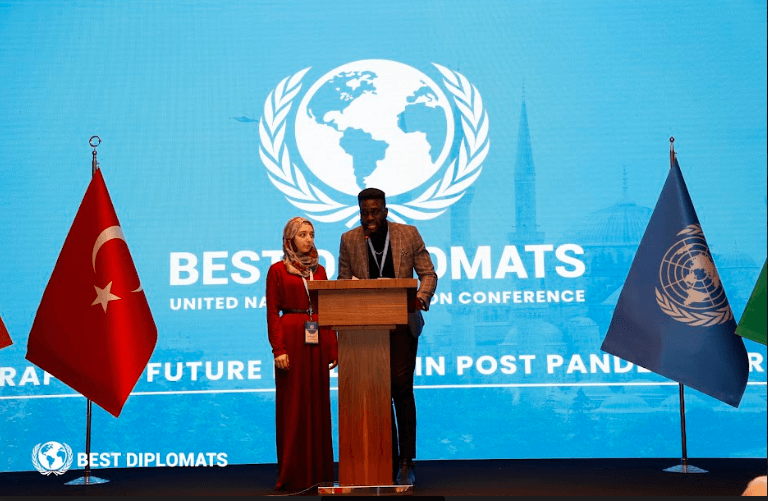Leadership can transform an organization; leadership can also break up an organization. It all boils down to the kind of leaders heading an organization. When leaders are true to their values and prioritize fulfilling all the roles of leadership in an organization, they can create positive ripples for the entire company.
However, when leaders do the bare minimum and shy away from their secondary roles and responsibilities like motivating and empowering others, they create a toxic and unwelcoming environment for the rest of the community.
This article will discuss the main roles of leadership in an organization and what happens when leaders prioritize these roles. To learn more, give this article a thorough read.
What Happens When Leaders Fulfill the Roles of Leadership in an Organization?
- Able to make the right hiring choices
- Able to communicate visions for the company
- Motivate and empower the employees
- Support the employees through thick and thin
- Create equitable policies
- Ensure a welcoming environment
- Motivate employees to give it their all
- Help employees reach their full potential
- Encourage staff collaboration
- Set the right example
- Set the highest standards of ethics
- Ensure accountability for all
- Make necessary adjustments where needed
- Create shared ownership
- Build and keep morale
When leaders plan on doing justice with their jobs, they also fulfill all the roles and responsibilities that come with them. However, there are always some roles and responsibilities they miss out on. Here is everything that happens when leaders can fulfill the roles of leadership in an organization.
1. Able to Make the Right Hiring Choices
The foremost responsibility of a leader is to make the right hiring choices. These will often reflect in the outcome of the revenues and the progress that the company generates. Leaders who hire from a diverse pool of people also end up revolutionizing the image of the company. Leaders who do not consider hiring an important role end up hiring the wrong people for the right job.
2. Able to Communicate Visions of the Company
Leaders who are committed to their roles know that they have to communicate the broad visions of the company. In most cases, the vision of the leaders and the vision of the staff do not align. This creates discrepancies in the jobs and outcomes of the company. When leaders fulfill their responsibility, everything occurs in concurrence.
Also Read: How can great leaders change the world for the better?
3. Motivate and Empower the Employees
There is a difference between the primary and secondary roles of a leader. Most leaders will fulfill the former but neglect the latter. Leaders need to make an active effort to motivate all the employees working in an organization. Additionally, they need to give them responsibilities and tasks that help empower them and make them feel validated.
4. Support the Employees Through Their Thick and Thin
This is yet another secondary role and responsibility of a leader. When you are leading an organization, you will often come across difficult situations. One or more of your employees will be in a difficult situation. Your employees might have committed a mistake that affects the company. Your job is to support these people and not leave them dry in their time of need.
5. Create Equitable Policies for All
No one wants to work in a company where some people are preferred over others: a company where people are judged on protected attributes like religion, sex, gender, or ethnicity. A well-informed leader will push HR to create equitable policies that consider everyone the same. More importantly, these leaders ensure that harassment, discrimination, and bullying are actively dealt with.
Also Read: How good leadership can transform a toxic workplace?
6. Ensure a Welcoming Environment
Leaders are often busy and are not able to give their full attention to welcoming their employees. However, leaders should try to engage with employees and make them as inclusive as possible. Additionally, leaders should talk to their new employees and make them comfortable. However, they can conduct ice-breaking sessions so new employees can feel at home.
7. Motivate Employees to Give It Their All
When leaders prioritize or reflect substandard work, others follow suit. This is why leaders need to put in twice as much work and effort so they can be role models for others. Simply telling their employees to stay motivated and give in their best will not do wonders.
8. Help Employees Reach Their Full Potential
Anything that an employee does can be improved, especially with encouragement and help from their superiors. One of the main roles of leadership in an organization is to help others reach their full potential. This includes devising strategies that cater to the mindset of individuals. A good strategy is to create diverse teams where the shortcomings of one individual can be made up by the strengths of another.
9. Encourage Staff Collaboration

Leaders can not simply delegate tasks and leave it to the individuals to do the rest. One of the prime responsibilities of a leader is to help the staff collaborate and fix up each other’s mistakes. Under the leadership of a good leader, staff members can look beyond their petty differences and think of the greater good.
10. Set the Right Example
This may not be a role in the strictest sense. However, one of the main duties of an exemplary leader is to set the right precedence for the rest of the staff. If the leader does not abide by the exceptional traits of a leader, others will also lack in showing these characteristics. When leaders show consistent behavior showing honesty, integrity, trustworthiness, and hard work, it shows in the behavior of the rest of the staff members.
11. Set the Highest Standards of Ethics
Morality is doing the right thing; ethics is showing the right kind of behavior, especially when you are engaging with other people. Leaders do not have the responsibility of being ethical, but they also have a responsibility to ingrain these ethics in the rest of the organization. This can be done by creating positive incentives like character certificates for the staff members.
12. Ensure Accountability for All
Organizations that hold people of all tiers accountable can attract good clientele as well as good future employees. It is hence a primary role of a leader to create an environment that creates fear of punishment. This can be through hardcore policies by the HR department or slightly softer incentives like fear of shame.
13. Make Necessary Adjustments Where Needed
Leaders can not show stagnant behavior, especially in these crucial times when everything is changing, all at once. When a crisis hits or an external situation becomes different, it is the job of a leader to make the necessary adjustments. Take the covid crisis for example. Leaders that remain stubborn end up losing their revenue streams. However, leaders who changed their strategies ended up staying relevant in the market.
14. Create Shared Ownership
An organization where only the people at the top feel belonged is not an organization that will do wonders. Leaders who fulfill all their roles and responsibilities end up creating the vision of shared ownership. They create a system where people feel like their worth is aligned with the worth or repute of the organization they are working in.
15. Build and Keep Morale
Building morale is easy. Leaders are usually able to convince everyone to give it their all at the start of a task. However, keeping morale is where leaders are tested. Leaders fulfill their secondary role of boosting others and keeping the highest morale through verbal and non-verbal cues. Moreover, leaders use their superior public speaking skills to get the motor of the organization running.
Why Are Leaders Unable to Keep up Their Promise of Good Leadership?
When people get promoted to a high leadership position, they often make grandeur promises. They promise a great many positive changes and try their best to ensure their team develops trust in their leadership. However, as time passes, leaders realize that they are not able to reach their full potential. Here are some of the reasons why this is so.
- Leaders get bombarded with a lot of responsibilities and they are unable to prioritize.
- Leaders lack organizational skills which prevent them from managing their time appropriately.
- Leaders spend too much time cultivating a positive image rather than showing authentic behavior.
- Leaders do not prioritize HR policies that ensure a non-toxic and equitable environment for all.
- Leaders are unable to draw distinctions between their personal and private life.
Fulfill Your Leadership Dream With the Best Diplomats

Whether you are a new leader or a potential leader looking to go places one day, you need help and support from people who have mastered the game. At Best Diplomats, you get to engage with a diverse group of people who can train you to be the best at your job.
From one on one debating sessions to conclusive and interactive group training sessions, Best Diplomats provide you with the perfect opportunity to hone your skills and prepare yourself for the difficult road ahead.
Conclusion
No role is big and no role is small; leaders who understand this can break shackles. Leaders need to realize that keeping the morale high for their employees is as crucial to success as hiring the right individuals. Similarly, creating a non-toxic environment is equally important to celebrate small wins within an organization. Leaders who can fulfill their primary and secondary roles can prove a game-changer for their organization.
FAQs
How Can Leaders Prioritize Their Roles and Responsibilities?
There is no hard and fast rule to this. For some organizations, hiring and training employees takes precedence over crisis management. In other organizations, prioritizing growth is the most important job of a leader. However, a general rule of thumb is that leaders should focus on roles and responsibilities that affect the majority of the organization first. Once those are sorted, they can focus on the secondary roles.
How Can Best Diplomats Help Leaders Fulfill Their Roles and Responsibilities in an Organization?
For most leaders, finding the right guidance is the biggest issue. With Best Diplomats, individuals can streamline their journey and escape the myopic worldview that they are stuck in. they are finally able to see the bigger picture and focus on important things. With this improved mindset, individuals can navigate their leadership journey much more effectively.
Does Best Diplomats Operate in My Country?
While Best Diplomats has taken strides to increase its reach, it is currently only available in a handful of cities including Dubai, New York and Istanbul, etc. As our reach grows, we will expand our training programs so anyone looking for leadership training can avail of this wonderful opportunity.
Will Best Diplomats Help Me With My Public Speaking Skills?
Most people who join this training struggle with public speaking skills. They often have wonderful ideas, but they are unable to articulate these ideas with clarity. Best Diplomats has designed its training programs in a way that facilitates anyone struggling to express themselves in public. Through its focus on verbal and non-verbal cues, Best Diplomats will help you hone your public speaking skills in no time.





